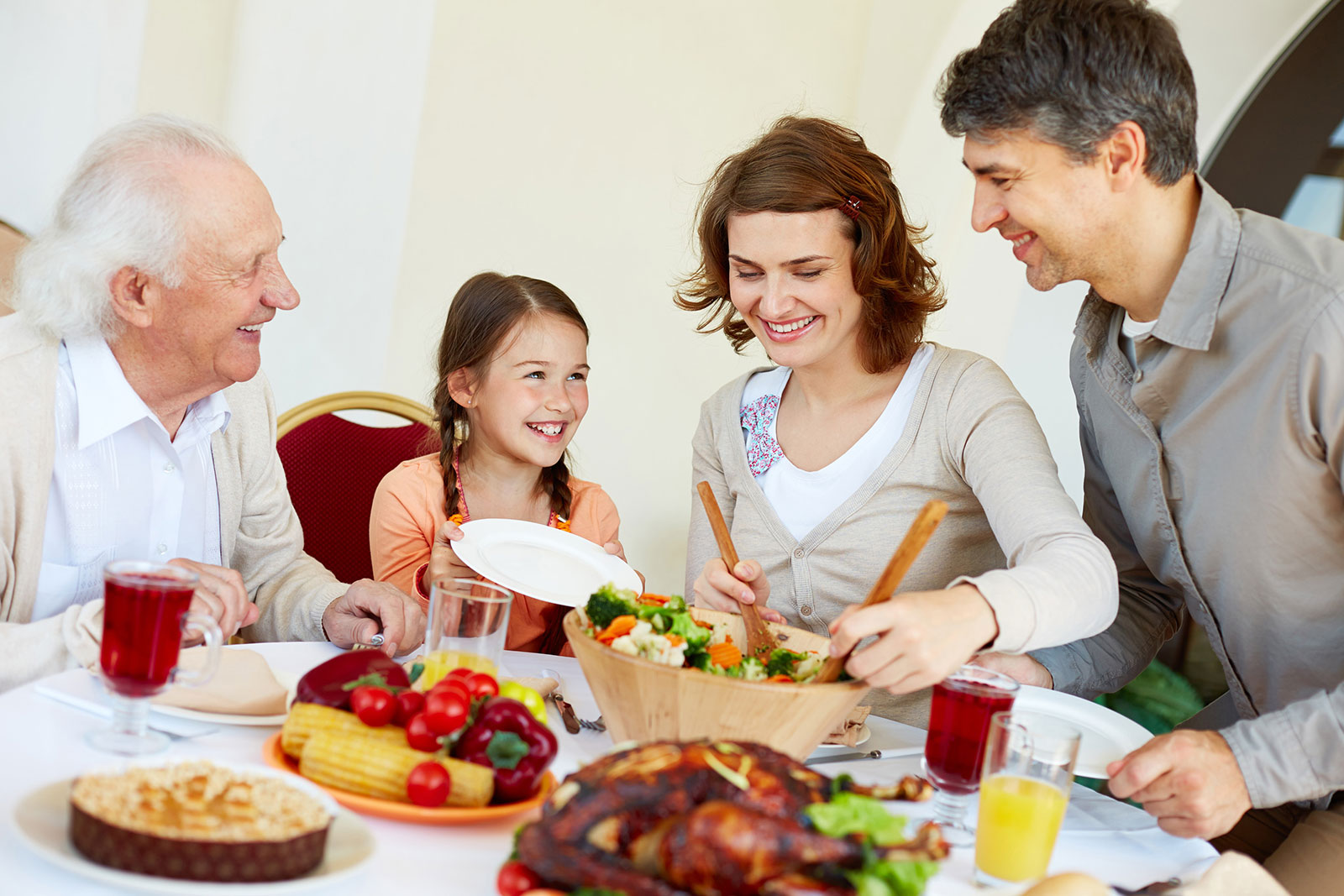Happy Thanksgiving to ALL of you! It’s that time of year when millions of families across the country are preparing themselves for turkey, stuffing, gravy, cranberry sauce, green bean casserole, candied yams, and I won’t even mention the desserts!
There are also family traditions, that, if a senior loved one is in transition, or their living situation has changed, there may be some new ones to integrate into your family. Families expand through marrying into new traditions too.
Yet, for many of us, year after year, it’s the same routine that we all know and love and stress over. That is, of course, until something or someone throws the routine for a loop. The common cause can be an aging loved one, who is perhaps no longer the independent, lucid and physically capable person they’ve always been.
If you’re one of the millions of Americans this year who is more worried about preparing for Nana or Uncle Joe than you are about preparing your pie crust, don’t worry; there is plenty of advice out there to help you. I’ve sifted through much of it and plucked out what I think are the most helpful tips.
Preparing meals for seniors
There are some things you should know about preparing meals for seniors. The first thing is that seniors do not metabolize food in the same way that they once did. They eat less. They tend to crave more sweets, and, what’s more, their taste buds might not be as sensitive to flavors as in years past.
Don’t be surprised or offended or upset then when your loved one doesn’t attack your casserole like he or she used to. In fact, you might want to think about preparing something special for your loved one, to cater to his or her changing dietary habits and needs.
- Make food that is easy to chew and swallow. Dentures and reduced saliva production might make tough and dry foods difficult.
- Use less salt. You don’t want to cause a dangerous spike in blood pressure or worsen water retention. Remember, you can always salt the food on your own plate later.
- Add more seasoning. To make up for the lower salt, aging taste buds and the dulling effect of some prescription medications, use savory, but not spicy, seasonings to provide more flavor.
- Use recipes rich with nutrition. Seniors need to eat food that is high in nutritional content and calories to make up for their often-reduced appetites
- Ask questions. Take a moment to ask your loved one what they enjoy eating these days. If they always loved a particular dish, ask them if they still do. Ask them if there is anything they don’t like.
Prepare. Prepare. Prepare.
I cannot say it often enough. To bring a senior loved one into your home for the day without knowing their routine, and without having proper medications and times and other aspects about their daily routine can make their visit not only over-stressful on them, it can create a horrible situation for the entire family! If they are in assisted living, have a short chat with the nursing staff, or dietician. Spend a moment to make sure that you know what your loved one likes to eat- and seriously, if you think it’s what it “always has been” you might be truly wrong! An example: All of my life I knew that my mother “hated sweet pickles.” Thus, when I would bring her over to my house, I never served them. One day my mother said, “I would like a sweet pickle cut up into my tuna sandwich!” I looked at her funny. I said back. “Mom, I didn’t know you liked sweet pickles!” She went on to explain that she started eating them at the assisted living community she lived in and she realizes now how much she likes them! Well surprise!! So much for how much I knew!
Having a brief conversation with the senior living staff will give you great tips on making your loved one feel easy at home.
Involve your senior loved one.
I used to ask my mother days in advance- “Mom what do you like most about Thanksgiving dinner? What would you like me to make? It was interesting on the dishes she valued most- which were mashed potatoes and gravy. I took the time to make the gravy the way my mother liked it! I even brought her a little taste as I was making it and asked her, “what does it need, Mom?” I honored her by making sure that her special request was not only honored but done the way she liked it.
Bring Dad to the Head of the Table!
Especially for our older adults, their world may very well be from traditional values, where Mom did all the cooking, and Dad sat at the head of the table. Dad may not be living in your home, but to him, he may very well be the “patriarch” of the family. A simple gesture to honor his position in the family can mean everything. It can also be a great way for him to feel great about the day- as simple as sitting at the head of the table can be.
Don’t be surprised if dessert is the biggest hit of the meal.
As seniors age, the last remaining taste bud that stays intact is their ability to taste sweet. (Thus, the sweet pickles!) Find great desserts that can provide sweetness and make them healthier, and also easy to chew.
Eat early and stay on schedule.
If you inform your loved one that you are eating at 3PM. Please keep to the schedule. Seniors can get extremely agitated if time is pushed back, or if the schedule in their minds gets altered. If you say you are picking them up at 2PM. Be there on time. Not 2:15, not 2:10! They can be extremely time conscious!
In closing, I want to remind each one of you that these days are precious. One of the things I prepped my family for in meals like this was to honor mom and dad by going around the table and telling them “what you are thankful for” when it came to them. It makes for a very profound and wonderful celebration and will make your loved ones’ hearts full! Take the time to acknowledge them for the many ways in which they have made a difference in your life!













